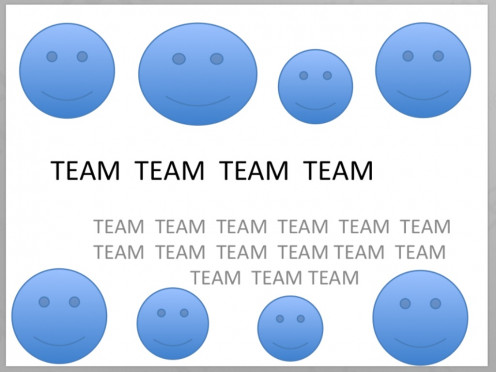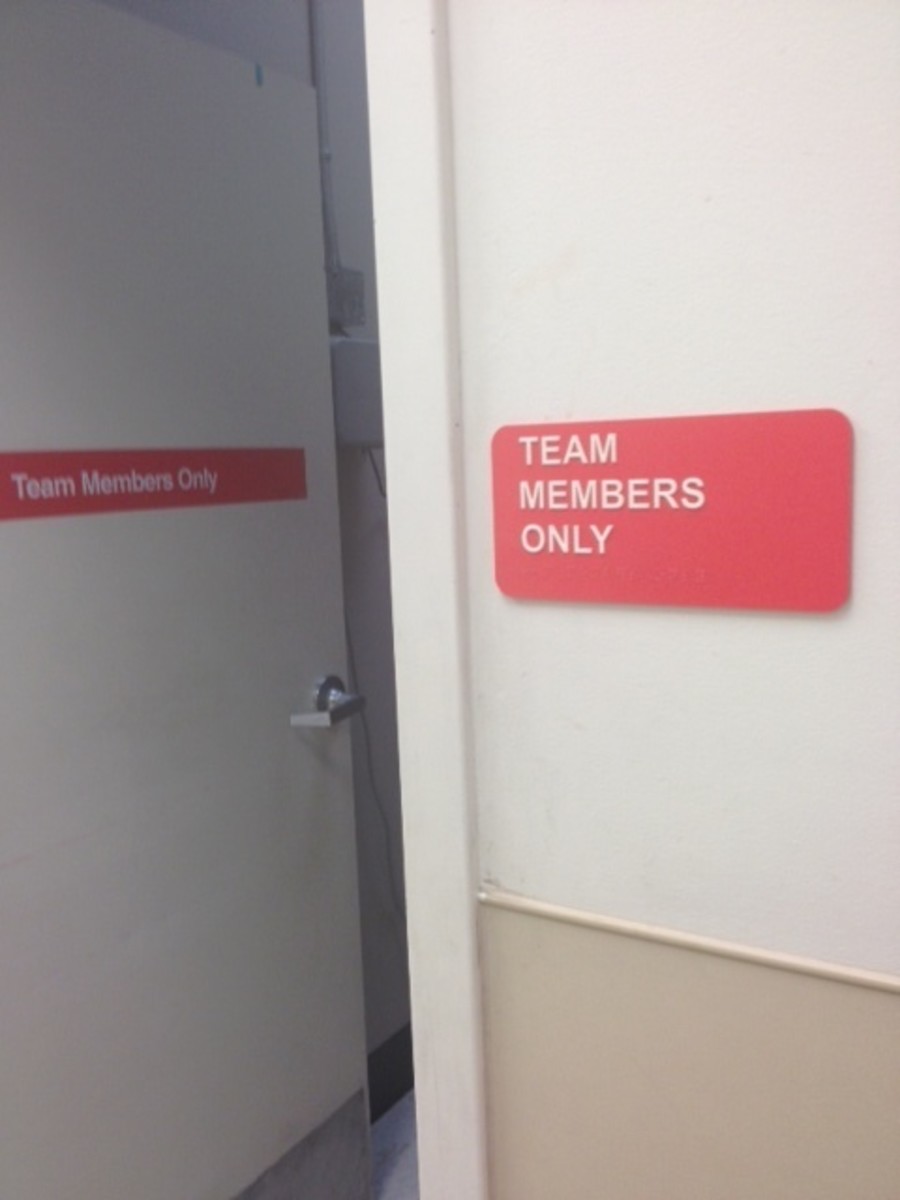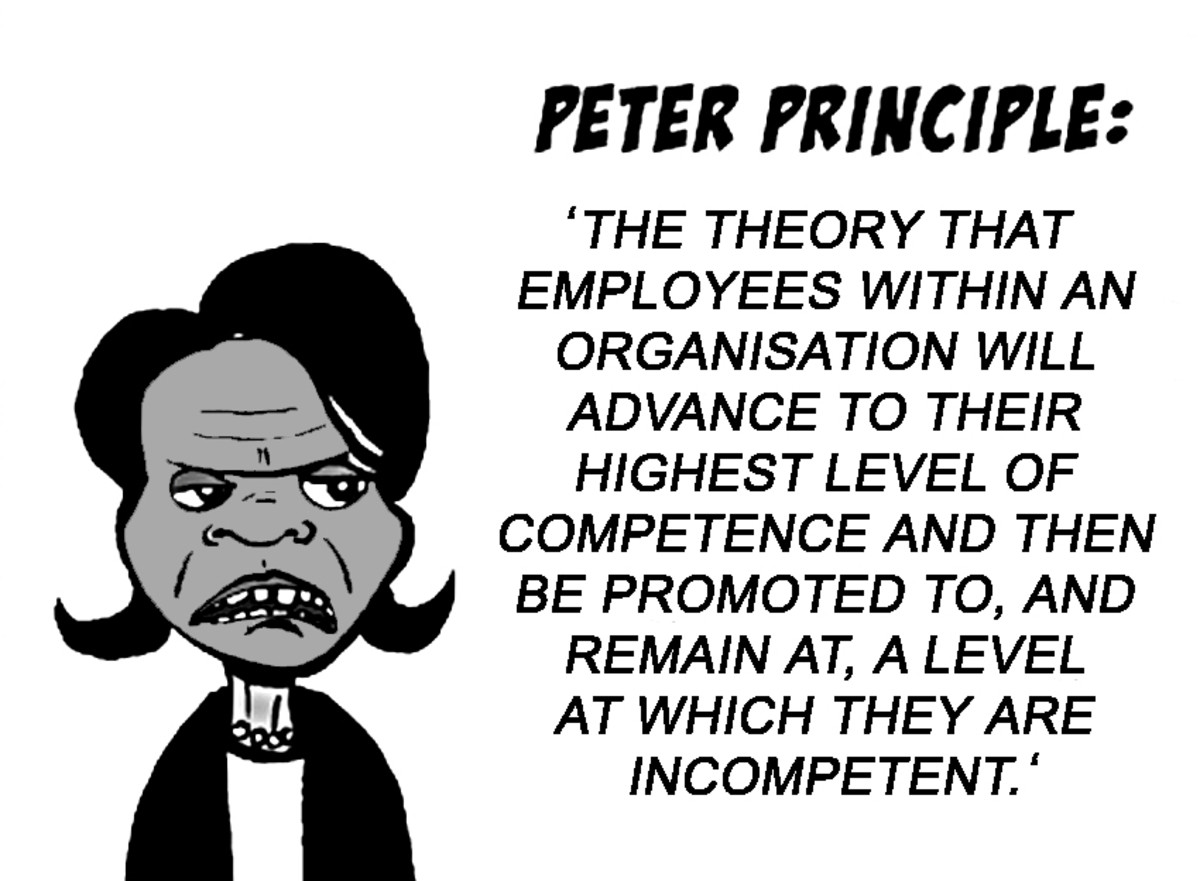How to Promote Teamwork in the Office
Christine McDade is an experienced human resources manager.

Teamwork Never Goes Out of Style
Drama and workplace gossip often create havoc in office settings. No matter the business or government entity, office cubicles and desk-like workspace breed an environment for dissension among co-works who bicker and fight over petty office jealousies. The personal stories brought to the workplace from home, typical work problems and the never-ending discussions of criticizing/judging others make for a tough workplace for the average employee to work successfully. Without proper leadership, teamwork becomes the much-needed, missing element to establish a trusting team.

Diversity in Work Teams
There is a common misconception about workplace teams that is shared by many employees. Many believe that a team made up of employees who are of the same age, gender, ethnicity, job titles, etc., will always make a successful team. After all, having the same interests and opinions must mean that everyone on the team will get along swimmingly. Not necessarily. Often, having so much in common causes competition between employees because assumptions are made that the person who looks like the others on the team will have the same aspirations, fears, and weaknesses to overcome in the performance of the job.
However, those qualities described above are all related to the "outside" or how an employee looks. It is the makeup on the inside, such as values and integrity, that define who we are in the workplace. Having an ethical approach to how the job gets done is what truly defines who an employee is. Therefore, having a work team that appears the same does not guarantee harmony in the performance of tasks in the workplace.
Having a diverse work team as part of the workplace, however, is a great asset for reaching the strategic goals of an organization. Employees who come from different places, have different backgrounds, are at different stages of their career, etc., add much value to a mix of skills that make a work team successful. For example, more experienced employees can lend advice and practical work successes to a younger employee who is just beginning his/her career. Conversely, employees who have just graduated can bring a fresh approach and outlook to a project that is struggling to reach its completion. While the intermingling of cultures and generational mixes may cause an occasional hiccup in the working relationships, addressing such issues and respecting one another for who they are can lead a team to great accomplishments.

Ways for a Leader to Improve a Team
There are many ways to build teamwork in the office. Consider the following:
- Encourage Good Communication - A sure-fire way to promote teamwork in the office is to encourage good communication. Effectively communicating with the team about changes, updates and current events in the company will establish trust among team members. Confidence in the vision of the company because the team members feel that they are a part of the overall goal achievement will build strong working relationships in the workplace. Having regular meetings with team members provides a forum for two-way communication about the work and any concerns that are being experienced by team members. In such a work environment, employees will share their opinions and provide valuable feedback to management.
- Keep an Open Mind - Teams grow and develop into successful workplace forces when employees on the team keep an open mind, and listen to their coworkers' suggestions. In addition to the team members sharing ideas with one another, management must keep an open mind about feedback they receive from subordinates who often have sound solutions to workplace problems.
- Respond to Employee Concerns - Since it will not be unusual to have a disagreement from time to time between team members, it will be important for employees to voice concerns when there are issues that the team members are unable to resolve. Management should address the concerns in a timely manner to demonstrate support. The desire to resolve the issue so that the team members can return the focus to the work is paramount. Unresolved issues tend to build over time to become big problems for the employer.
- Model a Positive Work Ethic - Nothing beats a good work ethic modeled by the leadership in an office setting. Team members watch the work habits and performance of the leader who will be expecting much from the work team. If the leader demonstrates a work ethic that is honest, positive and hardworking, team members are more likely to have a desire to follow that person. They will be motivated to follow such a lead, which includes emulating the same hardworking approach to the job.
- Have a Positive Attitude - Leaders demand a positive attitude from the team. Positive attitudes affect the work product. Worthwhile interaction and a healthy workplace are possible when team members have positive attitudes. Leaders must make an effort to foster positive attitudes by remaining calm during difficult situations. Losing one's temper or showing too much negative emotions can cause a team to lose faith in their leadership's ability to lead through troubling times.
Provide Training
Employees are often masters of their specialization, but need some work on their interpersonal communication. Working on a team means that employees must collaborate with others to come up with solutions for issues that arise during a project or pursuit of a goal. Compromise, listening to others and respectful working situations are only possible when employees respect one another for their contribution to the team. Professional trainers can often bring out the best in a work team by providing them with the tools to be successful in their participation, and working relationships with others. Self-awareness of communication skills can come about when a professional trainer works directly with a team.
Lead By Example
Above all else, teamwork is promoted through strong leadership that sets a positive example for all on the team to follow. Treating all team members fairly and in a respectful manner will show others the expectations of the interpersonal behavior in the workplace. When employees are confident that the leadership will accept all team members equally, there will be encouragement to express suggestions freely between the team members. The success achieved by such a team is phenomenal.








